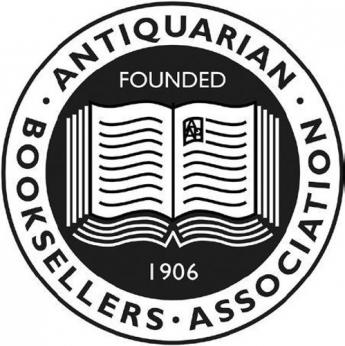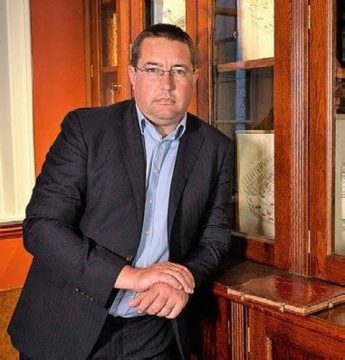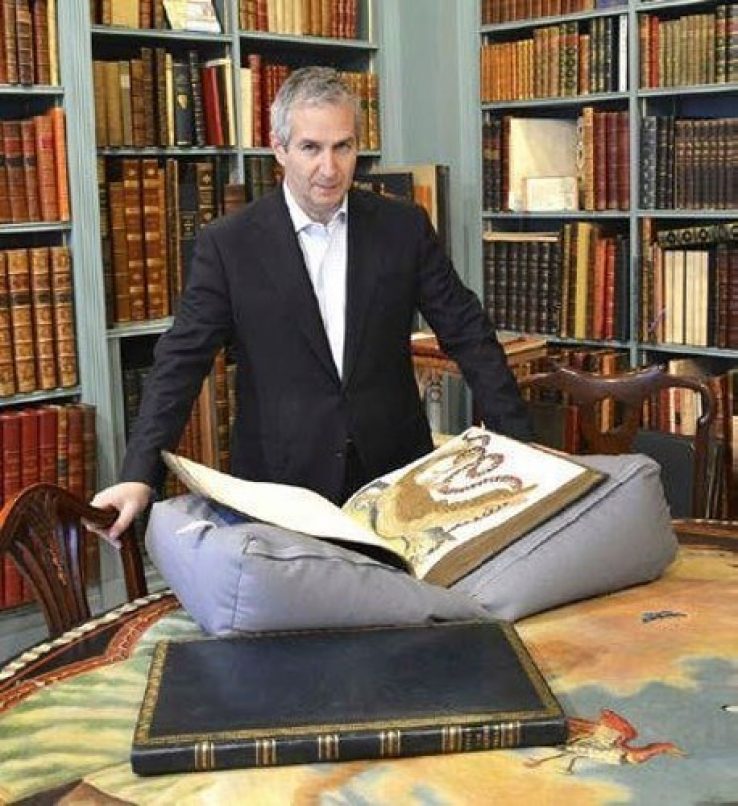Actualités
Binding the book trade together: how associations work to protect and promote dealers - Part 1 of 3

Binding the book trade together: how associations work to protect and promote dealers
By Dom Walbanke, 12 May 2025
Trade associations play a valuable role in representing their members, organising fairs and events and, among many other things, making sense of changes in legislation – particularly useful when US policy on tariffs seems to change every five minutes.
ABA
Founded in 1906, the Antiquarian Booksellers’ Association (ABA) represents the interests of over 230 member businesses.
It is the senior trade body for dealers in antiquarian and rare books, manuscripts and allied materials in the UK and Ireland and organises the annual flagship fair Firsts London. Various representatives of the association answer our questions here.

ATG: How did you as an association react to the new US tariffs and what support have you been providing to your members?
Daniel Crouch, Daniel Crouch Rare Books: The news on tariffs came while several of our members were exhibiting at the New York International Antiquarian Book Fair. I happen to know a lawyer close to the Trump administration (I know, I know… don’t ask… he used to be human, OK?), and so I asked him when and where to expect real news on what tariffs applied to our little corner of the world.

True to form for the MAGA crowd, he gave me inaccurate information, but did point me in the direction of the Federal Register. I then spent more time than I care to admit hitting ‘refresh’ on my phone until we got the news that ‘informational material’ was exempt. In response to this, we sent out an email to our membership within a couple of hours of the news becoming public.
Having said that, the exemption hasn’t stopped several members from being incorrectly ‘tariffed’.
How concerned are you about the EU cultural property laws that come into effect in June? How are you helping your members navigate the changes?
The EU cultural property law changes are primarily targeted at antiquities and so printed books and manuscripts are not as affected as some collecting areas. The only real issue we face is that, once enacted, we will have to make declarations to state that, as far as we are aware, our material has not been illegally removed from its country of origin.
As printed books are rarely unique, it is difficult for us to state this with 100% certainty, but, equally, it would be very difficult to disprove any declaration that we might make. In other words, the law doesn’t do much beyond create additional administrative friction.
What constitutes good practice and due diligence within the trade?
Riley Grant, ABA secretary: The trade is very much self-policed when it comes to book security. The ABA works hard to circulate information about book thefts as soon as possible. This keeps members up to date with ongoing book security issues and makes them aware of what to avoid.
We maintain a close relationship with the Metropolitan Police Art Crimes Unit, and we keep auction houses included in any book security alerts. The Missing Book Register (operated by ILAB) is an invaluable resource: missingbooksregister.org
How important are in-person fairs for booksellers?
Tom Lintern-Mole, Antiquates, co-chairman of Firsts London: With more and more antiquarian booksellers operating online, and working from home, book fairs offer a wonderful opportunity for customers to handle some of the finest books ever produced.

With fewer booksellers having shops, fairs such as Firsts London are hugely important, not only in terms of selling our wares but also in showing off our latest acquisitions, meeting our cherished existing customers, and hopefully attracting the attention of a new audience as well!
They are, of course, also a fabulous way to catch up with fellow exhibitors from around the world. The book trade is a truly global community, and book fairs offer an unrivalled way to keep up with new developments, new fashions, and new opportunities.
How do you keep things fresh as a fair organiser?
Tom Lintern-Mole: Of course, the very nature of book fairs - with dealers showing what excites them the most, usually very recently acquired - means they’re always fresh. But what can be particularly exciting about annual fairs like Firsts is seeing the dealers who have very recently joined the ABA, such as Tom Ayling and Sky Duthie, or never exhibited with us before, like Ursus Books from New York, exhibiting for the first time.
And, of course, each year we have a new theme. This year it is Books in Bloom, where we celebrate everything floral and botanical about the content, illustration and binding of rare books - whether it is spotting the delicate floral motifs on the binding of a first edition Alice in Wonderland, or highlighting florally decorated medieval manuscript, it is always a pleasure to look at our books from a new angle.
Large fairs like Firsts are also an opportunity to provide a lively schedule of free events to complement our visitors’ experience. This year we have speakers from the Oxford University Herbaria, Chelsea Physic Garden, and an ‘in conversation’ panel with The Book Collector and three young book dealers, among many others.
Is there a changing face of the book buyer?
Bernard Shapero, Shapero Rare Books, ABA president: What has changed greatly in the past 30 years is the very large breadth of people who can and do collect books. This is largely due to the internet, which has democratised the ability to purchase books, not only in price but also convenience.

No longer do you need to have the time and resources to visit bookshops physically, you can surf the net from home and view millions of books within seconds. This means that anyone who wants to buy rare books can do so, therefore making the market much more accessible.
So there is still a typical type of person who is the obvious rare book buyer, but who is now joined by a whole new raft of buyers of all ages, sexes, and demographics. This is illustrated at the Firsts London, which is visited by a very wide cross-section of interested buyers.
Are member demographics changing?

Paul Foster, Foster Books: The ABA is still the association of choice for established antiquarian book businesses, especially those exhibiting at international fairs. While we have members with decades of experience, there is a surge of new dealers coming into the trade, in established businesses, but also sole traders.
How are you attracting new members?
Paul Foster: the York Antiquarian Book Seminar (YABS) now runs under the auspices of the ABA’s Educational Trust and has proved a great stepping stone for those wanting to enter the world of rare books. The UK trade is all the more vibrant for this injection of new blood. New members recognise that the ABA badge is a mark of professionalism that gives customers confidence.
“The book trade is seeing an unprecedented interest from new and younger collectors currently” – why do you think this is?
In an increasingly ephemeral and digital world, the tangible has a remarkable allure. The past few decades have seen focus of collecting and academic study move away from books as pure texts, and towards books as objects. Objects that are beautiful, objects that are historical, and objects that are significant to the eye of the beholder. Because of the fabulous items we handle, the antiquarian book trade has a naturally occurring wellspring of fascinating stories to tell - and the internet and social media are a great medium through which to tell these. Stories of mysteries solved, and as yet unsolved; stories of fortunes acquired, and lost; and stories of books reimagined, forgotten, remembered or cherished.
ABA hosted Firsts Hong Kong for the first time at the end of last year. Can we expect that to be a permanent fixture from now on?
Rachel Chanter, ABA marketing manager: Firsts Hong Kong was conceived to revive the popular China in Print fair, which took place annually until 2018. Bringing the fair under the Firsts brand, which includes Firsts London and the biannual Firsts Online, the reinvigorated fair took place in December 2024 in the impressive venue of Hong Kong Maritime Museum.
Many ABA dealers have loyal customers in Asia, and a major international fair such as Firsts Hong Kong allows the perfect opportunity to meet this growing base of collectors in person. The fair was extremely well-received, and a 2025 edition is set to be confirmed shortly.
How did you decide on this year’s theme ‘Books in Bloom’?
We have been lucky in the past few years to host Firsts London at the Saatchi Gallery just ahead of the iconic Chelsea Flower Show, which takes place in May each year. With businesses the length of the Kings Road garlanding themselves in floral finery, and a distinctly green-fingered atmosphere in the air, we decided this was the year to join in.
Our dealers boast between them a wealth of stunning floral and botanical material, from illustrated works of natural history to intricate bindings stamped with gilt floral designs. To see and handle such works outside of a museum setting is an unusual and special encounter, and one of the unique experiences a rare book fair of Firsts’ size offers. Our theme is complemented this year by major floral and horticultural exhibitions at the Saatchi Gallery (ahead of Firsts London) and the British Library.
This interview was first published in the Antiques Trade Gazette Issue 2693 on 12 May 2025 and is reposted here with the permission of the publisher.
